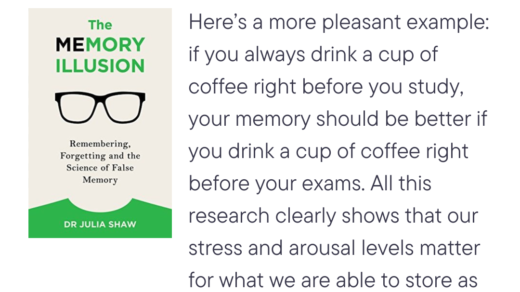Still there’s an important lingering question. If the goal of self-deception is to create a certain impression in others, why do we distort the truth to ourselves? What’s the benefit of self-deception over a simple, deliberate lie? There are many ways to answer this question, but they mostly boil down to the fact that lying is hard to pull off. For one thing, it’s cognitively demanding. Huckleberry Finn, for example, struggled to keep his stories straight and was eventually caught in a number of lies. And it’s even harder when we’re being grilled and expected to produce answers quickly. As Mark Twain may have said elsewhere, “If you tell the truth, you don’t have to remember anything.” Beyond the cognitive demands, lying is also difficult because we have to overcome our fear of getting caught. People get angry when they’re lied to—a reaction almost as universal as lying itself. (Even wasps who catch other wasps lying are known to retaliate in response.) Therefore, aside from sociopaths and compulsive liars, most of us are afraid to tell bald-faced lies, and we suffer from a number of fear-based “tells” that can give us away. Our hearts race, our skin heats up, we start sweating and fidgeting. Maybe we have an eye twitch, nervous tic, awkward gulp, or cracking voice. In light of this, often the best way to get others to believe something is to make it a reality. When you’re playing chicken, it won’t do much good to yell at your opponent, “Hey, I’ve torn off my steering wheel!” He won’t believe you until he sees that you’ve actually done it. Similarly, often the best way to convince others that we believe something is to actually believe it. Other people aren’t stupid. They’re aware that we often have an incentive to lie to them, so they’re watching us, eagle-eyed, for any signs of deception. They’re analyzing our words (often comparing them to things we said days, weeks, or months ago), scrutinizing our facial expressions, and observing our behaviors to make sure they conform to our stated motives. The point is, our minds aren’t as private as we like to imagine. Other people have partial visibility into what we’re thinking. Faced with the translucency of our own minds, then, self-deception is often the most robust way to mislead others. It’s not technically a lie (because it’s not conscious or deliberate), but it has a similar effect. “We hide reality from our conscious minds,” says Trivers, “the better to hide it from onlookers.” Modeling the world accurately isn’t the be-all and end-all of the human brain. Brains evolved to help our bodies, and ultimately our genes, get along and get ahead in the world—a world that includes not just rocks and squirrels and hurricanes, but also other human beings. And if we spend a significant fraction of our lives interacting with others (which we do), trying to convince them of certain things (which we do), why shouldn’t our brains adopt socially useful beliefs as first-class citizens, alongside world-modeling beliefs? Wear a mask long enough and it becomes your face. Play a role long enough and it becomes who you are. Spend enough time pretending something is true and you might as well believe it. Incidentally, this is why politicians make a great case study for self-deception. The social pressure on their beliefs is enormous. Psychologically, then, politicians don’t so much “lie” as regurgitate their own self-deceptions. Both are ways of misleading others, but self-deceptions are a lot harder to catch and prosecute.
Lying is difficult for most of us. We tend to trip up on our words or are unable to lie convincingly when we know something is wrong. This is where self-deception comes in. Being able to paint ourselves as the victim or hero in certain situations help us get by. Whats important is to not let our internal reality get too disconnected with the reality of your peers.



